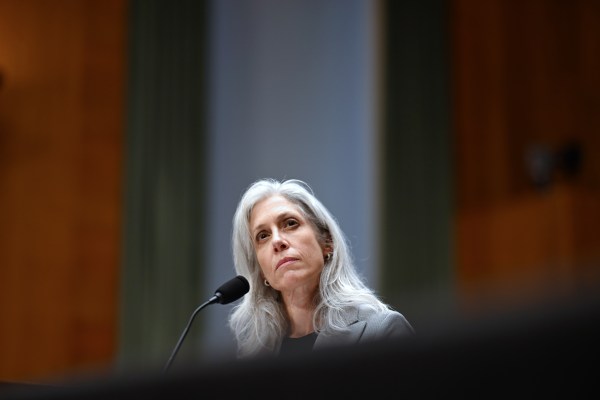Hi,
Here’s a fun question: If only men had tails, would we have to wear them inside our pants or outside? Okay, now, what if only women had tails?
Here’s another. How much money would it take for you to accept this deal: I’ll pay you X amount, but you have to take a pill that makes your nostril hairs grow like normal hair. and you can’t cut them for 5 years?
I ask these questions for many reasons. First, because I can’t wait for the replies to this “news”letter. Second, because sometimes I just have to start typing to get started when I don’t know what I’m going to write about. Third, because I think the nostril hair image is so gross, and the whole intro so self-indulgent, it will scare away readers disinclined to be spectators as I spelunk through my own cranial cave system. And seventh (I skipped reason 4-6 because my globalist paymasters told me to), because this is just one of those days where I just don’t want to write about politics.
It’s not quite writer’s block, but in my line of work it’s sort of close. Sometimes, I’m just exhausted by all of the things I’m supposed to be excited, agitated, or passionate about.
For instance, I just finished recording the latest episode of The Dispatch Podcast, and I just couldn’t get into it. My mind kept wandering, like one of Joe Biden’s sentences. For instance, when Steve Hayes was making the case for Tammy Duckworth as Biden’s best choice for VP, I kept thinking of how weird her last name is. We tend not to think it’s weird because we’re used to it. But if I had a character in a novel named Tara Goosevalue or Tamika Swanprice, you might think, “That’s a weird name.” That got me thinking about the SNL parody of Chris Matthews in which he referred to Dick Armey as Penis Navy. And that made me chuckle.
By the way—speaking of Chris Matthews, has there ever been a more prominent media figure to disappear more suddenly, without any condemnation or fanfare? It’s like he was one of the members of Stalin’s politburo who fell out of favor and was subsequently airbrushed from all official photos.
The end times.
Speaking of disappearing, whatever happened to eschatology? I ask because yesterday I was interviewed by the theologian Doug Wilson for his show Man Rampant. He opened with a question about eschatology, which, I’m not too ashamed to admit, is a topic I haven’t given much thought recently. It turned out to be a really interesting conversation.
Wilson wanted to know whether I thought our problems today were derived from a lack of eschatological consensus. Before I go on, I should explain what eschatology is. It’s a theological school of thought concerned with the final destiny of mankind. What is our fate? What is our ultimate collective goal? For Wilson—and lots of other folks—thinking about where we’re going is a useful way to get to the deeper (or at least equally deep) question: Why are we here?
I understand that this a weird place to end up in a conversation that started with tails and nostril hair, but I’ve been noodling with this a bit for the past 24 hours, which is obviously plenty of time to come up with an answer.
Just kidding. But it has been in my head, in part because I think Wilson raised a bunch of interesting questions that kind of caught me unprepared. And so I’ve been thinking about what I could or should have said instead.
One thing I did say—which I still stand by—is that such lines of inquiry make me nervous, and not just because of the risk they might expose my relative biblical illiteracy. I get nervous because, historically, when people talk about our collective fate or purpose at the end of time, they conclude that we should all be marching in the same direction to get there as quickly as possible.
Marxists, to take an easy example, have a secular eschatology that assumes everything will be awesome for everybody at the End of History-with-a-capital-“H.” And because the Marxists have—or had, I don’t know how many truly serious Marxists are left—an unshakable religious certainty about where we’re all heading and how awesome it will be, they see no problem with forcing all of humanity to march, even at gunpoint, to the materialist Kingdom of Heaven they prophesied. The Bolsheviks were a bit like Clark Griswold in National Lampoon’s Vacation. A lot of people didn’t want to get to the Marxian Wally World at the End of History, but the Griswoldian commissars didn’t care. We’re going to get there and you’re going to be whistling “Zip-a-Dee-Doo-Dah” outta your buttholes (at least for those of you who survive the gulags and all that).
The philosopher Eric Voegelin termed efforts by Marxists and other utopian secular movements to speed up the wheel of history “eschatological violence,” which he described as “A realm of action that lies, in the sentiments of the activist believers, beyond good and evil, because it secures the transition from a world of iniquity to a world of light.” In other words, if you truly believe that you are ushering in the salvation of all mankind for all eternity, shooting some kulaks or starving a few million Ukrainians is a small price to pay.
Not all eschatological violence is as barbaric and genocidal as that of communists and Nazis. Progressive economists and planners weren’t murderers, but they had a very high tolerance for breaking eggs to create the omelet of collective salvation. Richard Ely, arguably the most influential American thinker you’ve probably never heard of, was a towering intellectual in his time, the founder of the American Economic Association and a leader in the social gospel movement. (The AEA still has a prestigious lecture series named after him.) Ely reinterpreted Jesus’s meaning when he said that his kingdom is “not of this world” to mean “not of this age” —and he believed that the state, run by people like him, should use all of its powers usher in the Kingdom of Heaven here on earth, starting with the United States of America.
“I take this as my thesis: Christianity is primarily concerned with this world, and it is the mission of Christianity to bring to pass here a kingdom of righteousness and to rescue from the evil one and redeem all our social relations.” Ely despised the bifurcated world described by St. Augustine, lamenting that American life was “divided into things sacred and things secular,” arguing that “to a Christian all things must be sacred, his business as well as his church.” (I wrote a long essay on Ely here.)
Don’t worry, I’m not going to wade into the French-Ahmari wars here, but I do think this raises an interesting point. There is nothing new about people, on the left and right, arguing for yoking the transcendent to the prosaic.
Hunger eternal.
One of the things I love about Voegelin is the way he tries to stand outside of time. He sees certain impulses as baked into human nature. Think of it this way: Hunger is a timeless and universal attribute of being human. We all get hungry, regardless of when or where we exist. It is somewhat pointless to lament or criticize hunger. The only interesting questions revolve around what we do about it. What, how, where, and when we eat are questions that have a glorious diversity of answers over time, culture, and region. But only a fool would talk about how interesting it is that Chinese people or French people get hungry. Compared to whom?
Thinking that people somewhere else are special because they do stuff that humans everywhere do is one of the weirder mistakes a lot of smart people make. But that’s a subject for another time.
For Voegelin—and another favorite of mine, Will Herberg—man has a hunger for transcendence (Herberg described man as “homo religio”). This hunger is as natural and timeless as the hunger for food. If you take God—or gods—off the menu, you don’t lose your hunger. You just order something else. Perhaps my favorite description of the Marxist project comes from Voegelin. For the Marxist, he wrote, "Christ the Redeemer is replaced by the steam engine as the promise of the realm to come."
What he meant by this is that science had become the new religion, the new source of certainty, and the promise of deliverance from the alleged agony of existence. Voegelin:
When God is invisible behind the world, the contents of the world will become new gods; when the symbols of transcendent religiosity are banned, new symbols develop from the inner-worldly language of science to take their place. Like the Christian ecclesia, the inner-worldly community has its apocalypse too; yet the new apocalyptics insist that the symbols they create are scientific judgements.
I don’t want to mischaracterize Voegelin’s views, many of which are still decidedly opaque to me (he is very difficult to read at times), so I don’t want to say what he’s describing here is simply idolatry. But it’ll do for me. The case against idolatry isn’t that having idols is bad, but that having false idols is bad. And false idols can take all manner of forms. One I’m somewhat obsessed with, perhaps due to my mild enochlophobia, is the idolatry of crowds, groups, us. We don’t normally talk about crowds as idols, but I think they can be. I love this passage from the religious writer and pastor Eugene Peterson:
Classically, there are three ways in which humans try to find transcendence—religious meaning—apart from God as revealed through the cross of Jesus: through the ecstasy of alcohol and drugs, through the ecstasy of recreational sex, through the ecstasy of crowds. Church leaders frequently warn against the drugs and the sex, but at least, in America, almost never against the crowds.
I wish I had remembered that in my conversation with Wilson. He seemed to want to steer me toward the necessity of populist politics. I could be wrong about that (he was a gentlemanly and indulgent host), but that was my sense of it. I think one of the things that explains a lot about populist or “protest” politics these days—and in every other day humans walked upright—is the feeling of cheap transcendence we get from being part of a big group.
Elias Canetti writes in Crowds and Power that inside the crowd, “Distinctions are thrown off and all become equal. It is for the sake of this blessed moment, when no one is greater or better than another, that people become a crowd.”
You must know that feeling. It’s captured quite beautifully in the song “Do You Hear The People Sing?” from the musical Les Misérables, and I think it can probably tell you more about the mass political movements of the last 300 years than most books can:
Do you hear the people sing?
Singing a song of angry men?
It is the music of a people
Who will not be slaves againWhen the beating of your heart
Echoes the beating of the drums
There is a life about to start
When tomorrow comes
The problem is that the ecstatic feeling of marching as one, sublimating yourself to a larger cause, is by necessity temporary. That tomorrow—at least the tomorrow the marchers imagine, where that feeling never dies—never actually comes.
As Canetti writes, “The crowd, as such, disintegrates. It has a presentiment of this and fears it. ... Only the growth of the crowd prevents those who belong to it from creeping back under their private burdens.”
The crowds cannot grow forever. And when they dissipate, some are left with a hole in their soul that manifests itself as a kind of hunger for the false transcendence of the idolized crowd.
This is the problem with all forms of idolatry: They are fool’s gold. Voegelin’s most famous line, popularized by Bill Buckley, about not immanentizing the eschaton is a political caution and a religious one. In simple terms, immanentizing the eschaton means trying to create a Heaven on Earth, to establish in the here-and-now what is reserved for the hereafter (at least according to Christians like Voegelin). It’s a political caution because any internally consistent effort to create one gives permission to those who would resort to eschatological violence. The religious warning is just as important: It cannot be done. In the world we live in—what Voegelin called “intramundane” existence—feelings of transcendence are possible, but only temporarily. And often, they are the feelings that flow from idolatry, not revelation or grace.
We cannot make this life perfect, we can only strive to make it good. And any society that deserves to be called “good” must make allowances for the reality of human nature and the freedom to choose one’s own source of meaning or transcendence. Any society that tries to impose perfection from above will fail to achieve perfection, and will likely sacrifice its ability to be good in the process.
Still from Les Misérables (2012) courtesy Universal Studios.







Please note that we at The Dispatch hold ourselves, our work, and our commenters to a higher standard than other places on the internet. We welcome comments that foster genuine debate or discussion—including comments critical of us or our work—but responses that include ad hominem attacks on fellow Dispatch members or are intended to stoke fear and anger may be moderated.
With your membership, you only have the ability to comment on The Morning Dispatch articles. Consider upgrading to join the conversation everywhere.